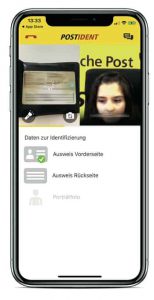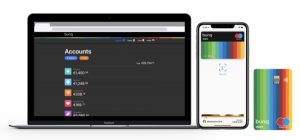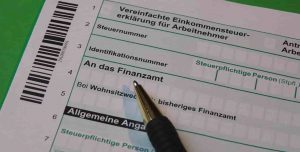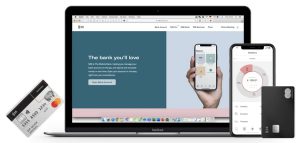Are you planning to move to Germany or have you already made the move? Oftentimes, as a newcomer you will rely on your foreign bank accounts to manage finances in the first weeks. However, one of the most important things is opening a bank account in Germany.
Why is that? Simply put, without a local bank account, you will likely face several problems in your day-to-day life in Germany. For example, opening a bank account in Germany makes it easier for you to rent an apartment or get a German phone contract. Moreover, starting your own business is much easier for anyone with a German bank account.
As a Berlin-based employment specialist and recruitment firm, our team supports foreign companies with their strategic expansion projects into Germany. As a result, we gathered feedback and insights from our international clients starting their operations in Germany. We have summarized our knowledge in this article to guide you on how to open a bank account in Germany as well as with a recommendations on the best German banks.
To understand banking in Germany you need to understand its major players. There’s a peculiar mix of companies and institutions in Germany with different focus and purpose. Generally, there are 4 types of banks in the market.
First, you’ll find retail and commercial banks. These banks have long tradition to finance most of Germany’s international trade and its industry. They are still very relevant and excise control over roughly half of all assets in Germany. Internationally, these banks are losing ground though to their American and Asian rivals. For instance, Deutsche Bank used to be a big name worldwide and the best German bank, but has suffered a lot from the 2008 crisis.
Despite their position, the banks are not the only force in the retail banking sector. The market is fragmented with the top three sharing 15% of the market. Competitors include public sector banks especially cooperatives, a rather german phenomenon.
The public banks include Sparkassen and Landesbanken (regional banks). Usually, a Landesbank operates in a region, while smaller Sparkassen target specific cities or urban areas like Berlin or Munich. Sparkassen here are local savings banks, not to be confused with Sparkasse, the big German retail bank.
Lastly, cooperative institutions are major players in Germany as well. Also known as Raiffeisenbanken, you’ll find around 1,000 across Germany.
Both, cooperatives and public banks are serving rather local communities and their needs. They provide a sense of community and safety and usually do not focus on internationals. With their internal structure and strategy they are reliable and less risky, but some are trying to expand their focus recently.
Whether shopping for electronic, pet food, a hotel room, or a credit card, consumers today expect convenient buying experiences. Researching and then purchasing a product or service must be both, simple and comprehensive. This is not different in the banking industry.
However, digital firms and fintech disruptors often deliver this level of service much better than traditional banks. And the new and disruptive reality is here to stay. Essentially, people still need banking but not necessarily the traditional banks.
Especially expats and international visitorsprefer to use Direct Banks in Germany. They are usually newer banks that have been around since the early 2000’s. They are not digital by birth like fintechs, and share infrastructure with traditional banks.
In general, they will rarely have physical branches to keep their cost structure low. They rely on digital platforms instead and offer ATM withdrawals with a network of partners. Consequently, you’ll experience less paperwork, less service, but also lower fees. This new kind of financial institutions are more and more becoming the best banks in Germany.
As an EU Citizen, opening a bank account in Germany is a simple and easy procedure. On the contrary, non-EU Citizens are required to provide additional documents. This includes proof their official registration in Germany along with a Work and Residence Permit in order to successfully setup an account.
You have not arrived in Germany yet and want to proactively start the procedure? Good news, the best German banks allow you to opening a bank account in Germany from abroad.
In order to apply for the opening of a bank account in Germany, you’ll require the following documents:
Please note that most traditional German banks simply cannot handle customers from abroad. Firstly, it is likely that they might be providing their services in German language only. Secondly, they will probably operate mainly in their physical location. But overall, they will ask for lots of paperwork to be signed.
As a result, Universal Hires strongly recommends to skip this lengthy process and go directly online. You can open a bank account entirely online with an increasing number of banks. No matter if you choose N26, DKB, Revolut, Commerzbank or any other bank, the account opening procedure is likely to be very similar.
As always, you’ll need to provide your full personal information alongside with your registered address. Be aware that you need to provide an address within the EU.
Once you have successfully entered your information, you’ll be asked to accept the bank’s terms and conditions. This includes by law a money laundering statement. In practice, all German banks are very transparent with their pricing and do not have any hidden fees popping up out of nowhere.
Once this is done, you’ll still need to verify your identity. Not to worry though, it’s much easier than you think.

Easily verify your identity using the PostIdent method
The identity verification can be done directly on your computer or smartphone. In this case you will use the online identification service provided by the bank of your choice (PostIdent). In most cases, the bank you are setting up an account with will guide you through the steps within the app directly.
Please do keep in mind that this option is only possible for certain nationalities. This will depend on your passport and the necessary information fit contains for the VideoIdent procedure
Once you’ve followed all steps above, you will need for the bank’s approval. After that, you have successfully opened a German bank account. In practice, the account should be ready-to-go within 2-3 working days.
With literally hundreds of different banks available in Germany to choose from, we’d like to focus on the best possible options for both foreigners expats and/or non-residents.
One of the best accounts to open for foreigners, expats and non-residents is the bank account provided by N26.
The application takes literally only eight minutes. You can then manage everything directly from your phone and it’s completely free. The free bank account from N26 lets you withdraw cash from any ATM, up to 5 times a month.
With the premium options N26 You and N26 Metal there are options to upgrade your experience as well.
8-Minute Setup
Free Mastercard Debit
Free Cash Withdrawls
Online Customer Support
German IBAN
Our runner-up is the Dutch bank Bunq. They refer to themselves as The Bank of The Free.
Bunq is a mobile-only bank that first appeared in Europe in 2014. Like any other bank, it is fully-licensed to operate in Germany. However, Bunq does not offer the same low prices as their competitors. And still, the bank’s offering might still convince you to open an account with them. Bunq has a one focus: Provide the best possible bank account experience. Whether you prefer their Premium, Joint or Business bank account solution.

Fast & Easy Setup
Fully Mobile Bank
Free Mastercard
Joint Accounts Possible
Cheap International Transfe
It’s important to point out that you’ll need to meet several requirements, before you are eligible as a student to open a bank account in Germany.
As a student for instance, you must be at least 18 years or older. In addition, individuals that are coming from outside of the EU to study in Germany must also provide a document that proves their permanent German residency.
Don’t worry, though. This document can be obtained by the local authorities once you complete your local registration (Anmeldung). In order to open bank account, you do not need to have this at hand straight away.
Your Passport
Registration Certificate in Germany (Meldebescheinigung). You can get this document by simply making an appointment with your local town hall (Bürgeramt / Rathaus)
Certification of Enrollment from your university
It’s 2020 and nowadays, the best place for students in Germany to open a bank account is definitely online. For example, mobile banks simply require your name, birth date, and German address in order complete the application. The whole opening procedure shouldn’t take much longer than 10 minutes.
Moreover, the mobile banks listed below offer additional incentives for students to sign up. These include a free debit card, free ATM withdrawals, and zero fees for opening and managing the bank account from the smartphone. It’s perfect for e.g. exchange students coming to Germany.
A local champion and bank account loved by students is the N26 bank account.
The application takes literally only eight minutes. You can then manage everything directly from your smartphone and it’s 100% free. The N26 bank account lets you withdraw cash from any ATM for free, up to 5 times a month.
It comes with a debit Mastercard in a unique transparent design.
8-Minute Setup
Free Mastercard
Free Cash Withdrawl
Online Customer Support
German IBAN
Another great bank account for students is Bunq.
Bunq is a mobile-only bank that first appeared in Europe in 2014. Like any other bank, it is fully-licensed to operate in Germany. The bank’s offering might convince you to open an account with them as a student. Bunq cares about your customer experience and offers security, card management and sharing options at your fingertips.
Fast & Easy Setup
Fully Mobile Bank
Free Mastercard
Joint Accounts Possible
Cheap International Transfer
If you are working as a freelancer in Germany or if you are self-employed there is one very important thing to consider. Due to tax declaration purposes, it is mandatory for freelancers to open a business bank account in order to keep your private and business finances separated from one another.
Even with only a few incoming payments per month, using your free private bank account should not be an option to run your business. Note that your private bank will most likely get in touch with you anyway, once they’ve identified invoice payments coming into your personal bank account

Tax Return Filling for Freelancers in Germany
Prior to setting up a bank account, freelancers / self-employed in Germany should know that they are required to maintain a balance sheet (simple profit-loss statement) of their operation. Therefore, we strongly advise to separate your private and business accounts in Germany.
A business-only account will enable you to easily provide a fullly transparent track-record of your payment activities. In return, this enables you to set up a smooth VAT tax return (Mehrwertsteuer-Rückerstattung) filing with the authorities. Also, keep in mind to keep a fixed percentage of your business income in your professional account in order to arrange tax payments when they are due. Usually, you will pay your taxes to the German tax authority (Finanzamt).
Once you’ve completed your registration with the German authorities as freelancer or a self-employed, you’ll want to open a bank account for your business. That allows you to make transactions exclusively for business purposes. As mentioned, this is also required for accounting and tax reasons.
To start the bank account opening procedure, you’ll require the following documents:
Europe ID card or passport
Official registered address in Germany
German Tax ID number (Steuer-ID)
There are various options from different banks, unfortunately not many banks offer a free bank account for freelancers or self-employed.
However, we’ve summarized the two best options below:
One of the easiest accounts to open for freelancers and the self-employed is the N26 Business Account.
The opening procedure takes only eight minutes. And after,you can manage everything directly from your phone and it’s completely free. In fact, N26 will give you a free business Mastercard and send you 0.1% cashback for all card purchases every quarter.
Fast & Easy Setup
Free Business Mastercard
Budgeting Feature
Online Customer Support
German IBAN
One of our solutions of choice is the Berlin-based firm PENTA, a business banking provider for small and medium-sized enterprises (SMEs).
PENTA is a fast and easy business banking solution, with a fully digital application process. It will only take a few minutes and offers a competitive and transparent pricing model. Furthermore, Penta also offers team Mastercards with individual spending limits, integrated accounting tools like LexOffice and Debitoor, as well as international payments.
Fast & Easy Setup
Free Business Mastercard(s)
Full Accounting API
Incorporation Support
Great Customer Support
In practice, a business or corporate bank account is an independent account that is required when you starting a business in Germany. All transactions of a company should be managed in this account.
Corporate accounts are mandatory in Germany for capital companies such as the AG, GmbH, UG, e.K. or oHG,
In case you setup one of these entities, you will also be required to deposit your share capital (Stammkapital) into the business account. Instead of opening the account with an old-fashioned German brick and mortar bank, we advise you to open the account with a direct bank (digital bank without any physical branches)
Partnerships – OHG & GbR
Partnerships (Personengesellschaften) such as the oHG or the GbR are requires to hand in proof of the partner’s identity along with the articles of association (Gesellschaftsvertrag) when registering for a corporate account.
For the OHG in specific, the bank will require the list of all partners (Gesellschafterliste), an extract from the commercial register (Handelsregister) and the official trade licence (Gewerbeschein) from the public order office (Ordnungsamt). In contrast, when opening a business bank account in Germany for GbRs, a business registration does not need to be provided in case the partnership solely consists of freelancers.
Limited Corporations – GmbH, AG
On the other hand, when opening a business bank account for limited corporations such as a GmbH or AG, more documents are required.
Important: At the time of the business account opening, note that a German company is still in the process of formation as the company filling into the commercial register can only be made after payment of the share capital (Stammkapital) into the corporate account.
For visibility, we’ve summarized, the documents that are usually required:
Identification
Certificate of incorporation (Gründungsurkunde)
Business registration (Gewerbeanmeldung)
Articles of association (Gesellschaftervertrag)
List of shareholders (Gesellschafterliste)
Trade license, if necessary (Gewerbeschein)
Excerpt from the commercial register (Handelsregisterauszug)
Authorisation for shareholders to access the account (Kontovollmachten für Gesellschafter)
Our solution of choice is the European challenger bank HOLVI. They provide companies the tools to easily manage their corporate finances. The account allows fully digitally banking. The main perk is its smart business tools allowing, create full automated expenses budgeting and invoicing features.
In addition, HOLVI has integrated with the leading accounting agencies and software solutions in Germany to allow for easy-to-use bookkeeping integrations.
Fast & Easy Setup
Free Mastercard
Invoicing Feature
Invoice Creation
German IBAN
Another great option for businesses is the Berlin-based firm PENTA, a business banking provider for small and medium-sized enterprises (SMEs).
PENTA is a fast and easy business banking, with a fully digital application process only taking a few minutes alongside a competitive and transparent pricing model. Furthermore, Penta also offers team Mastercards with individual spending limits, integrated accounting tools like LexOffice and Debitoor, as well as international payments.
Fast & Easy Setup
Free Mastercard
Full Accounting API
Incorporation Support
Online Customer Support
Whether you are coming to Germany as a student, you are an expat working on behalf of a foreign company or you are setting up a business as a freelancer or as an entrepreneur, most likely you will need to open a bank account at some point.
Our solutions provided in this guide should enable everybody to easily open and operate your finances from Germany without much hassle involved. If you have any questions or feedback on this guide, do not hesitate to leave them below in the comment section.
Depending on the type of bank account you would like to open, the standard timeframe should be between 3 and 7 working days. Keep in mind that the application can be done in as little as 8 minutes when choosing one of our suggested options.
Through a partnership with CASH26, digital banks such as N26 offer an unlimited withdrawals at partner stores for free. You can also deposit up to €100 per month into your digital bank account.
Wiring money via a domestic transfer (Überweisung) isn’t difficult at all. Simply use your bank’s online banking portal. Keep in mind that you require the account details of the receiving account.
It’s important to keep in mind that classical bank transfers in Germany won’t be credited to the recipient instantly. If you need to send a wire transfer by a certain date, be sure to leave a couple of days in between. Transfers will typically be made within 2-4 working days.
It might be useful to know that when using N26 and Bunq, transfers to other users within the same bank can be made instantly.

Mit Hilfe ausführlicher Guides gibt die Rubrik Märkte & Wissen einen ersten Überblick über verschiedenste globale Märkte und deren lokalen Eigenschaften. Von Firmengründung bis hin zur Personalsuche und -einstellung werden die Grundladen der wichtigsten Märkte thematisiert und erläutert.
© Universal Hires 2020

